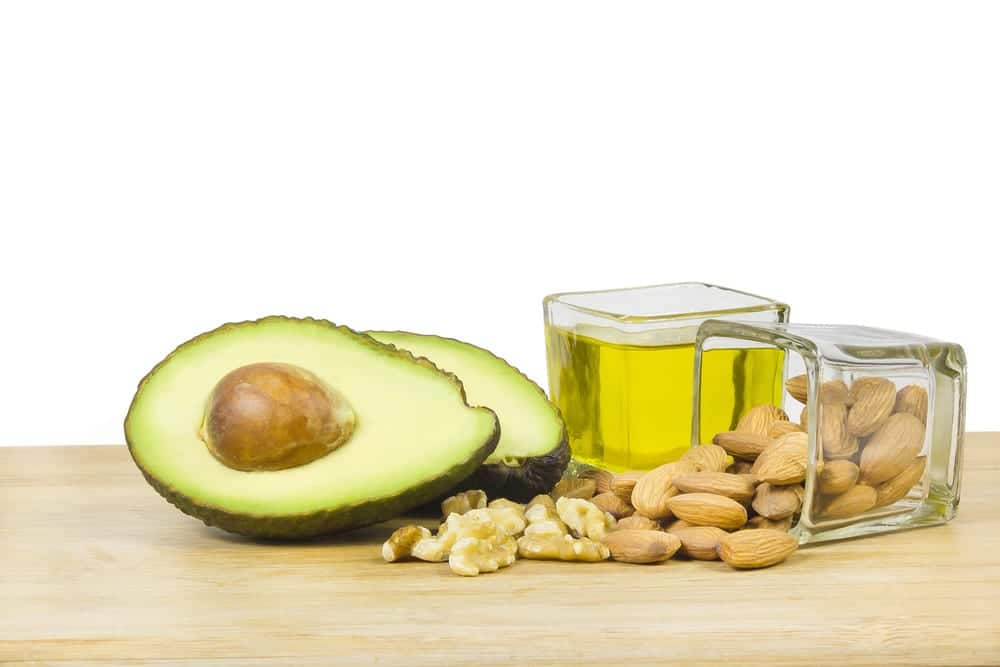The diet industry is often dangerous in the way it demonizes certain things: fats, carbs, calories, gluten, etc. So long as you’re following your doctor’s nutrition advice, just about everything is okay in moderation. Some nutrition advice is truly misleading. Take fats, for example. Many people think of fat as always being a bad thing and seek out “non-fat” and “low-fat” products. In reality, dietary fats are essential to the body. They provide energy, support cell growth, protect your organs, keep your body warm, help with nutrient absorption, and produce important hormones. The important thing to keep in mind is that there are different types of fat, some of which are healthy and some of which are not. So what are healthy fats?
Types of Fat
There are four main types of dietary fats in food, and they differ in chemical structure and physical properties:
- Saturated Fats: Saturated fats raise the level of cholesterol in your blood. They’re found in many foods – mainly animal products like beef, lamb, pork, poultry with skin, butter, cheese, and whole milk. The American Heart Association recommends that about 5 to 6 percent of the calories in your diet come from saturated fat.
- Trans Fats: Trans fats raise your bad cholesterol levels and lower your good cholesterol levels, which increases your risk of heart disease, stroke, and type 2 diabetes. They’re found in many processed foods, like doughnuts, cakes, cookies, crackers, frozen pizza, and margarine. The American Heart Association recommends cutting back on foods that contain partially hydrogenated oils (the primary dietary source of trans fats).
- Monounsaturated Fats: Monounsaturated fats are beneficial in moderation, as they reduce bad cholesterol levels and lower your risk of heart disease and stroke. They also provide vital nutrients. Foods containing monounsaturated fats include olive oil, peanut oil, sesame oil, avocados, peanut butter, and many nuts and seeds.
- Polyunsaturated Fats: Like monounsaturated fats, polyunsaturated fats are beneficial in moderation, lower bad cholesterol levels, reduce your risk of heart disease and stroke, and provide important nutrients. Foods high in polyunsaturated fats include soybean oil, corn oil, sunflower oil, some seeds and nuts (like walnuts and sunflower seeds), tofu, and soybeans.
What Are Healthy Fats?
So what are healthy fats? Monounsaturated fats and polyunsaturated fats are considered healthy and should be included in your daily diet. If you’re having trouble distinguishing between types of fat, keep in mind that good fats tend to be liquid at room temperature (like olive oil and peanut oil) while less healthy fats tends to be solid at room temperature (butter, bacon fat, beef fat). This can be a confusing trick, however, as many solid foods contain liquid fats: avocados, peanuts, olives, etc.
So when you’re at the grocery store or perusing a menu, keep an eye out for these healthy-fat foods:
- Avocados
- Walnuts
- Almonds
- Pistachios
- Sunflower seeds
- Nut and seed butters (peanut butter, almond butter, sunflower seed butter)
- Olives
- Olive oil
- Ground flaxseed
- Chia seeds
- Oily fish (salmon, tuna, trout, mackerel, sardines)
- Tofu
- Edamame
No one’s diet is perfectly healthy (what an exhausting life that would be!), so don’t worry too much about the amount of good fats you eat each day. If you’re eating a well-balanced diet, you’re likely already eating plenty of healthy fats.
Are you looking for an assisted living community in Tennessee? Check out Hearthside Senior Living in Collierville and Bartlett. Our warm and inviting communities makes it easy for seniors to embrace a healthy lifestyle, with home-cooked and restaurant-style meals, exercise classes, and a nurse devoted to residents’ health and wellness. To learn more about our amenities and services, please contact us online.

